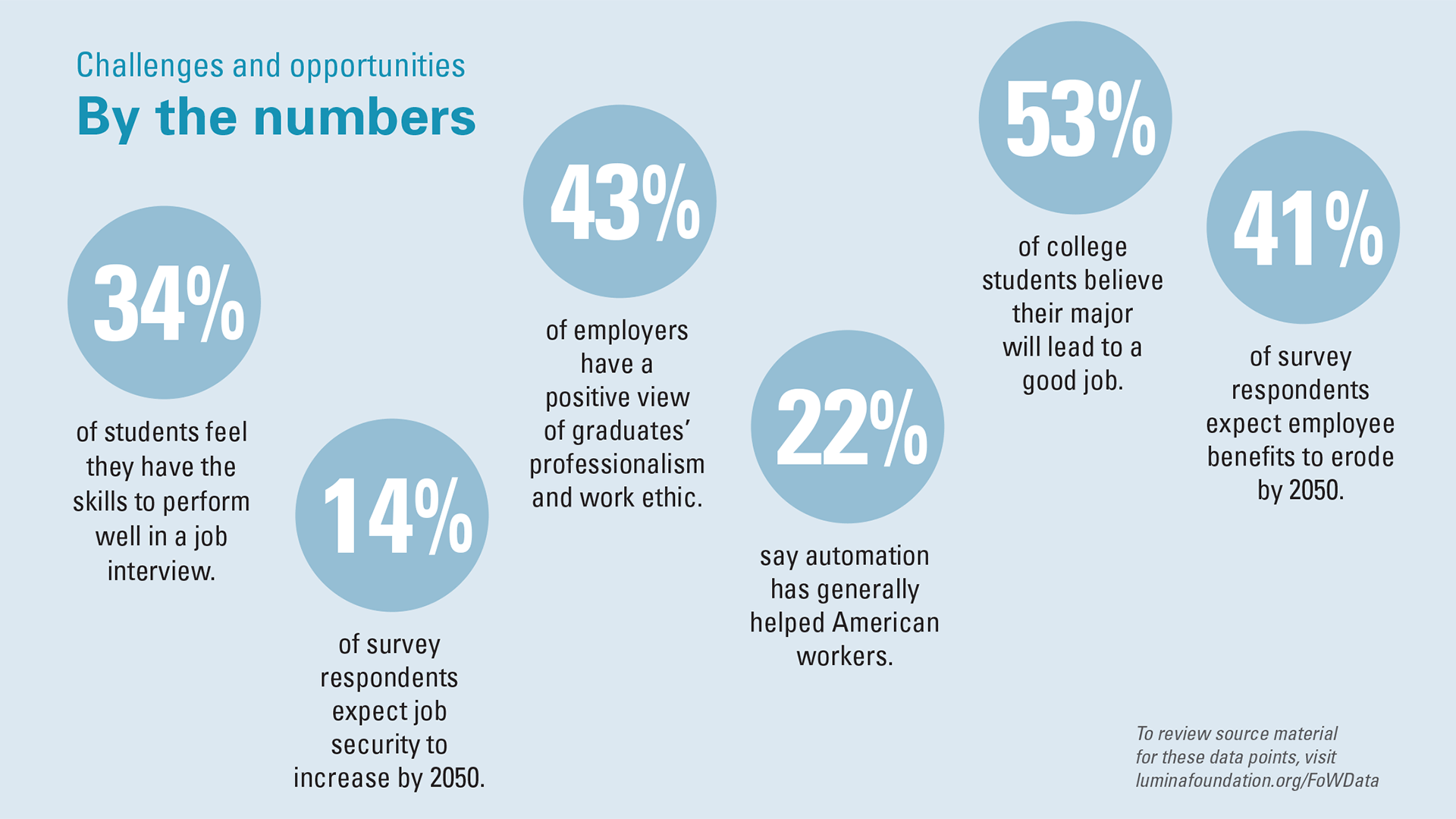Data sources for Lumina’s ‘Future of Work’ document
- Fewer than half of today’s college students believe they have the skills they need to make a successful transition to the workforce. For instance, just 43 percent say they can construct a suitable resume. Also, few say they’re prepared to perform well in a job interview (34 percent) or conduct a job search (31 percent). 2018 McGraw Hill Future Workforce Survey
- Only one-third of today’s college students believe they will graduate with the skills and knowledge to be successful in the job market (34 percent) or in the workplace (36 percent). Only half (53 percent) believe their major will lead to a good job. Strada/Gallup 2017 College Student Survey
- There is a big gap between student and employer perceptions of workplace preparedness. While one recent survey (2018 McGraw Hill Future Workforce Survey) showed 77 percent of students feel confident about their professionalism and work ethic, a separate poll of employers (NACE Job Outlook Study) shows that just 43 percent see recent college graduates as proficient in these areas.
- Americans are deeply uneasy about their future in the workplace. According to a Pew Research Center survey, only 14 percent of adults say that, by the year 2050, the average working person in the U.S. will have more job security. About half (49 percent) say workers will have less job security, and 36 percent say jobs will be about as secure as they are now.
- When asked more specifically about employee benefits in the future, public views again skew negative. One in five adults (22 percent) in the Pew survey say they expect employee benefits to improve for the average worker by 2050. About twice as many (41 percent) say benefits will erode, and 36 percent say they will be about the same.
- The vast majority of Americans see workplace automation as inevitable, and many view it negatively. In fact, figures from the Pew Center’s Fact Tank show that 82 percent of survey respondents say that, by 2050, robots and computers will definitely or probably do much of the work done by humans. Roughly half (48 percent) say these advances have mostly hurt American workers, while only 22 percent say they have generally helped.
- When asked who should be most responsible, over the next 30 years, for ensuring that American workers have the right skills and training to get a good job, 39 percent of Pew survey respondents point to the education system. Only 11 percent assign primary responsibility to employers, and the same share of respondents say government should be most responsible.
The future of work demands high-quality education beyond high school
